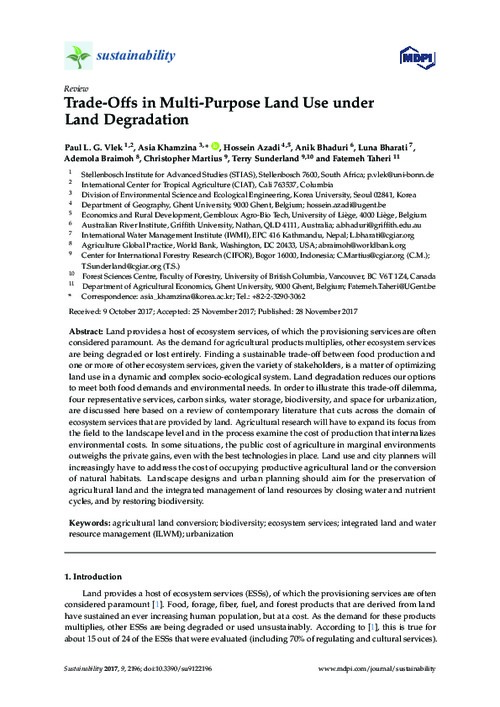Location
MDPI AG, a publisher of open-access scientific journals, was spun off from the Molecular Diversity Preservation International organization. It was formally registered by Shu-Kun Lin and Dietrich Rordorf in May 2010 in Basel, Switzerland, and maintains editorial offices in China, Spain and Serbia. MDPI relies primarily on article processing charges to cover the costs of editorial quality control and production of articles. Over 280 universities and institutes have joined the MDPI Institutional Open Access Program; authors from these organizations pay reduced article processing charges. MDPI is a member of the Committee on Publication Ethics, the International Association of Scientific, Technical, and Medical Publishers, and the Open Access Scholarly Publishers Association (OASPA).
Members:
Resources
Displaying 1366 - 1370 of 1524Influential Actors’ Perceptions of Facilitators and Instruments for Solving Future Forest Land-Use Disputes in Europe
Despite strong expectations regarding the role that forestry, with its multitude of potential benefits, could and should play in the ‘bio-economy’, little research has been done on the actual perceptions of influential actors on how to best address future forest land-use disputes. We want to shed light on whether and in which contexts expectations regarding the bio-economy, e.g., the strong role of markets, are likely.
Land Use Planning and Wildlife-Inflicted Crop Damage in Zambia
Damage to crops from wildlife interference is a common threat to food security among rural communities in or near Game Management Areas (GMAs) in Zambia. This study uses a two-stage model and cross-sectional data from a survey of 2769 households to determine the impact of land use planning on the probability and extent of wildlife-inflicted crop damage. The results show that crop damage is higher in GMAs as compared to non-GMAs, and that land use planning could be an effective tool to significantly reduce the likelihood of such damage.
Foraging is determinant to improve smallholders’ food security in rural areas in Mali, West Africa
Studies on the enabling factors for household food security (HFS) most often used simplified econometric models looking into the links with a selected set of variables. In this research, a livelihood approach of HFS was used and aimed at determining the most significant livelihood assets for HFS in dryland agricultural systems. Elements of the five livelihood assets were assessed through questionnaire surveys with a random sample of 180 households, and six focus group discussions in three communities along the rural-urban continuum, in Southern Mali.
A synergy cropland of China by fusing multiple existing maps and statistics
Trade-Offs in Multi-Purpose Land Use under Land Degradation
Land provides a host of ecosystem services, of which the provisioning services are often
considered paramount. As the demand for agricultural products multiplies, other ecosystem services
are being degraded or lost entirely. Finding a sustainable trade-off between food production and
one or more of other ecosystem services, given the variety of stakeholders, is a matter of optimizing
land use in a dynamic and complex socio-ecological system. Land degradation reduces our options






